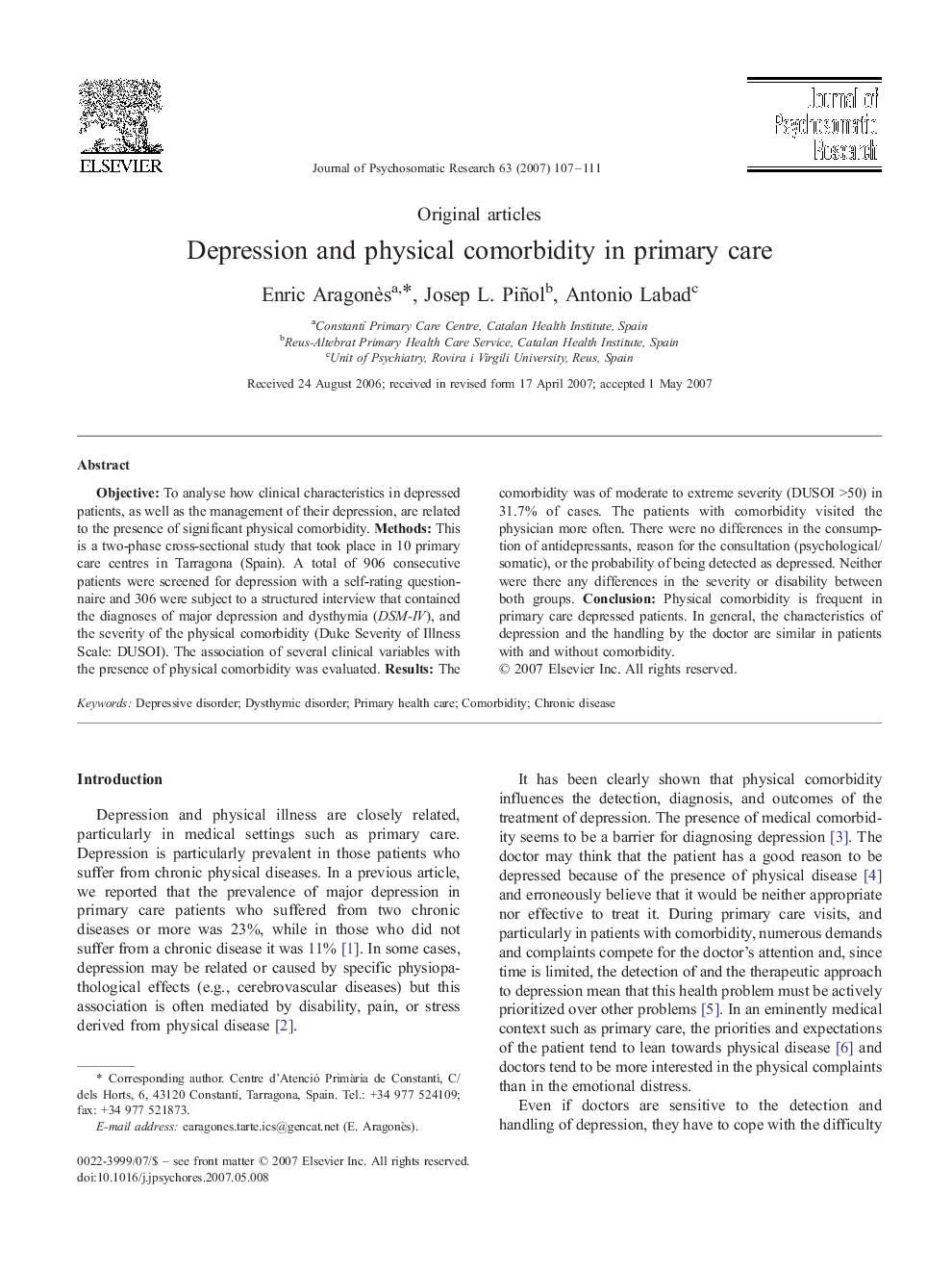| Article ID | Journal | Published Year | Pages | File Type |
|---|---|---|---|---|
| 950783 | Journal of Psychosomatic Research | 2007 | 5 Pages |
ObjectiveTo analyse how clinical characteristics in depressed patients, as well as the management of their depression, are related to the presence of significant physical comorbidity.MethodsThis is a two-phase cross-sectional study that took place in 10 primary care centres in Tarragona (Spain). A total of 906 consecutive patients were screened for depression with a self-rating questionnaire and 306 were subject to a structured interview that contained the diagnoses of major depression and dysthymia (DSM-IV), and the severity of the physical comorbidity (Duke Severity of Illness Scale: DUSOI). The association of several clinical variables with the presence of physical comorbidity was evaluated.ResultsThe comorbidity was of moderate to extreme severity (DUSOI >50) in 31.7% of cases. The patients with comorbidity visited the physician more often. There were no differences in the consumption of antidepressants, reason for the consultation (psychological/somatic), or the probability of being detected as depressed. Neither were there any differences in the severity or disability between both groups.ConclusionPhysical comorbidity is frequent in primary care depressed patients. In general, the characteristics of depression and the handling by the doctor are similar in patients with and without comorbidity.
